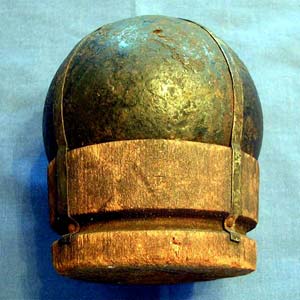

The president’s older brother, Mahinda Rajapaksa, is prime minister.

Nirupama Rajapaksa’s late father was his cousin. Sri Lanka’s president is Gotabaya Rajapaksa. “That is why people in countries like Sri Lanka can earn money in corrupt ways and easily use these tax havens to send them overseas.” “But in international financial centres, many don’t do that,” he said. Piyadasa Edirisuriya, a former Sri Lankan finance ministry official and now a lecturer at Australia’s Monash University, says that offshore financial services firms could stop illicit money flows by conducting due diligence on clients and monitoring their transactions.

The rest of the country, which is still recovering from the civil war, has been left with little to invest in schools, health care and other social programmes. In Sri Lanka, where economists say the income gap between the poor and the rich continues to increase, lax tax regulations have been a boon for the wealthy and powerful.

The two-year investigation found billions pouring out of impoverished and autocratic nations and into private accounts listed under the names of shell companies and trusts, often hidden from courts, creditors and law enforcement.Īmong the results: Governments around the world are starved of desperately needed resources, and global wealth is concentrated into ever fewer hands. READ MORE: How Daim, M'sia's uber-rich use S'pore to store money offshore The records describing the financial machinations of Nadesan and Nirupama Rajapaksa are among more than 11.9 million records from Asiaciti and 13 other offshore service providers obtained by ICIJ and shared with global media partners as part of the Pandora Papers investigation. ICIJ couldn’t independently verify the figure. In emails to Asiaciti, a longtime adviser of Nadesan’s put his overall wealth in 2011 at more than US$160 million (RM669.12 million). The median annual income in Sri Lanka is less than US$4,000 (RM16,728). They were able to amass and hide their fortune in secrecy jurisdictions with the assistance of financial services providers, lawyers and other white-collar professionals who asked few questions about the source of their wealth – even after Nadesan became a target of a well-publicised corruption investigation by Sri Lankan authorities.Īs of 2017, Rajapaksa and Nadesan’s offshore holdings, which haven’t previously been made public, had a value of about US$18 million (RM75.28 million) according to an ICIJ analysis of a Nadesan trust’s financial statements. The confidential documents, obtained by the International Consortium of Investigative Journalists (ICIJ), show that as the country was ravaged by a bloody, decades-long civil war, the couple set up anonymous offshore trusts and shell companies to acquire artwork and luxury apartments and to store cash, securities and other assets in secret. The painting, 'Goddess Lakshmi' by Raja Ravi Varma, is part of a collection belonging to Thirukumar Nadeson. His wife, Nirupama Rajapaksa, is a former member of Sri Lanka’s Parliament and a scion of the powerful Rajapaksa clan, which has dominated the Indian Ocean island nation’s politics for decades. The owner of “Goddess Lakshmi,” and the artworks in transit with it, as recorded on the packing slip, was a Samoan-registered shell company with an unremarkable name, Pacific Commodities Ltd.īut a cache of leaked documents from Asiaciti Trust, a Singapore-based financial services provider, indicates that a politically connected Sri Lankan, Thirukumar Nadesan, secretly controls the company and thus is the true owner of the 31 pieces of art. That vast, ultra-secure warehouse complex, larger than 20 football fields, stores among its many treasures what the BBC once called “the greatest art collection no one can see.” It was one of 31 works of art, altogether worth nearly US$1 million (RM4.18 million), that were being shipped to the Geneva Freeport in Switzerland. The painting, by 19th-century Indian master Raja Ravi Varma, depicts the four-armed goddess clad in a red sari with gold ornaments and standing atop a lotus flower. PANDORA PAPERS | In early 2018, workers in a London warehouse carefully loaded an oil painting of Lakshmi, the Hindu deity of wealth, onto a van bound for Switzerland.


 0 kommentar(er)
0 kommentar(er)
